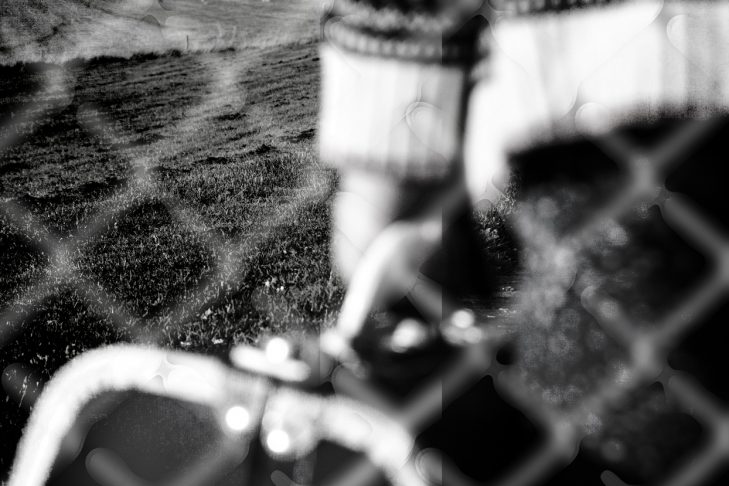The suitcase is one of the most iconic images of immigrants and refugees. Suitcases are carefully packed. Suitcases are abruptly confiscated. When I went to Auschwitz-Birkenau, suitcases were stand-ins for victims of the Nazi genocide. They were haphazardly piled together—symbols of abandonment and murder.
In my Cuban family, suitcases represented a life forcibly left behind in Havana. My grandparents closed the door of their house on almost half-a-century of life. They were allowed one small suitcase per person. They crammed pictures and valuables in their luggage, only to have most of those things seized at the airport.
The International Institute of New England, a century-old organization based in Boston, Lowell and Manchester that helps to resettle immigrants and refugees, has unpacked metaphorical suitcases in a series of performances called “Suitcase Stories.” The Needham Area Immigration Task Force/Resettle Together committee presented the latest edition of “Suitcase Stories” on June 12 at Temple Beth Shalom.
As World Refugee Day approaches on June 20, seven participants who hail from South Africa, the Philippines, America, Mexico, Syria and Sudan told their origin stories of immigrating and fleeing to America. Among the storytellers was Georgina Arrieta-Ruetenik, who recalled being separated from her mother when she was 5. Her mother worked as a nurse in New York City to bring the rest of the family to America. The reunion, forever imprinted on Arrieta-Ruetenik’s heart, haunted her as she saw recent images of children taken from their parents at the southern border. In response, the unassuming Needham-based photographer, who was telling her story in public for the first time, organized vigils on the town common for the separated children and their families.
Francisco Mendez waded across the Rio Grande to reach Brownsville, Texas. The restaurant owner recalled he was 14 “when I was looking at my dream on the other side of the river.”
Biar Kon, a refugee from Sudan, spent 20 of his 26 years in a refugee camp in Kenya. While there he endured violence, natural disasters and hunger. He and his sister were granted visas to come to the United States in 2016. He told his rapt audience that he hopes “that telling my story will bring attention to the authorities about the kids on the southern border.”
Having heard these stories, I realize my family was among the lucky refugees. The placement of those two words in the same sentence may seem like an oxymoron, but think of what’s happening right now on the southern border. It was the proverbial elephant in the room at “Suitcase Stories.” Children are ripped from their parents’ arms. Central American refugees, who have walked for days on end, braving crime, sexual assault, hunger and exhaustion, are denied even the most basic human rights. There has been a spate of deaths of refugee children and adults. In America, U.S. citizens are arrested for giving water and food to refugees crossing the desert. What have we become as a country, as individuals?
A Los Angeles Times article by Jonathan M. Katz recently compared the detentions happening at the border to concentration camps:
“There’s a name for that kind of system. They’re called concentration camps. You might balk at my use of the term. That’s good—it’s something to be balked at.
“The goal of concentration camps has always been to be ignored. The German-Jewish political theorist Hannah Arendt, who was imprisoned by the Gestapo and interned in a French camp, wrote a few years afterward about the different levels of concentration camps. Extermination camps were the most extreme; others were just about getting ‘undesirable elements … out of the way.’ All had one thing in common: ‘The human masses sealed off in them are treated as if they no longer existed, as if what happened to them were no longer of interest to anybody, as if they were already dead.’”
As a Jew, I’m sensitive to bandying about Holocaust vocabulary and imagery. Genocides and human rights tragedies are not one-size-fits-all. The Holocaust remains a unique rupture in the history of humanity. And yet, I’m compelled to acknowledge that places like Port Isabel, Adelanto and Hutto are concentration camps. As Katz writes, “If we call them what they are—a growing system of American concentration camps—we will be more likely to give them the attention they deserve.”
As I listened to refugees, immigrants and citizens tell their “Suitcase Stories” in the safety of the Temple Beth Shalom sanctuary, I thought of the children in cages, people dying from lack of medical attention, the deliberate breakup of families.
The Nazis did not start out running extermination camps. They built up to that horror over the course of eight years while no one was paying attention. I pray that no one else’s “suitcase stories” are stories that recount another rupture in the history of the world.



